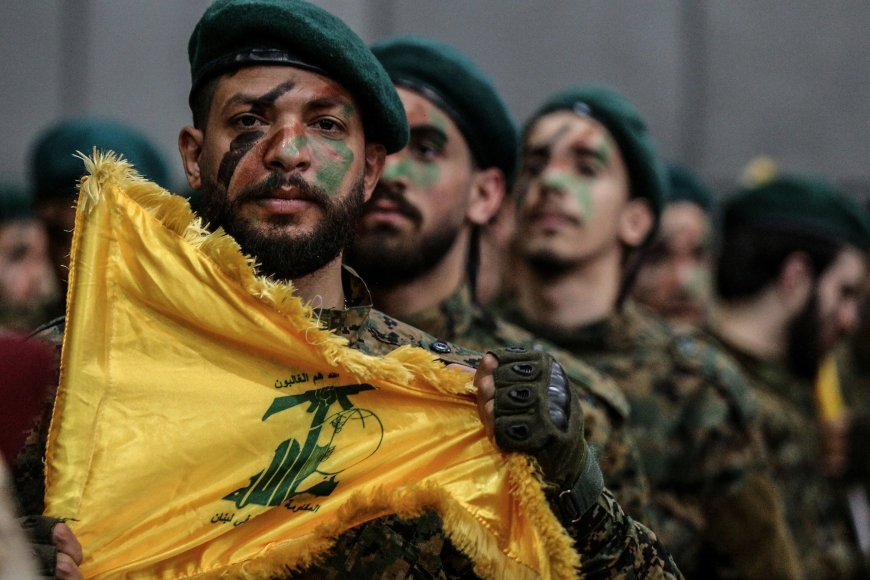Israel’s Fragile Fortress: How Hezbollah Outsmarted Its Foe

In tandem with the crushing missile strikes launched by the Islamic Resistance of Lebanon (Hezbollah) against northern Israel, extending as far as the southern outskirts of Haifa, Israeli regime media, in a caustic commentary directed at their prime minister, quipped that following the most recent wave of Hezbollah’s missile barrages, Netanyahu must now consider how to return Haifa’s residents to their homes. This comes in light of his previous failure to repatriate the displaced settlers of northern Israel.
In recent months, the Israeli regime has been engulfed and beset by a myriad of challenges, stemming largely from its inability to advance toward a ceasefire and its stagnation in achieving strategic gains on the Gaza front. As a result, we have seen a marked shift in the regime’s focus toward the north, with an evident intent to stoke tensions in this region, thus embarking on an aggressive and expansionist campaign against Lebanon.
It is a well-established fact that the Iran-led Axis of Resistance has never been the provocateur of regional conflicts. Nevertheless, the Israeli regime, perennially seeking to export crises and foment turmoil, would, if given the chance, ignite the entire region. Empowered by the unwavering support of its Western allies, particularly the United States and with access to a vast array of advanced weaponry Israel has long perpetrated heinous atrocities with impunity and shows no signs of relenting.
In its unconventional operations targeting Hezbollah’s military commander, Ibrahim Aqil, Israel grossly underestimated Hezbollah’s capacity to swiftly retaliate with surgical precision. The ensuing missile strikes, unprecedented in their accuracy, underscored Hezbollah’s formidable military prowess, capable of blindsiding an adversary that had struck with full force, thereby delivering a profound strategic shock.
Thus, it can be unequivocally stated that while the Israeli troops may have inflicted tactical setbacks on the resistance, it is Lebanon's Hezbollah and by extension the Palestinian resistance that has delivered decisive strategic blows to the Israeli regime since last October 7. These key impacts include:
a-Erosion of Israel’s intelligence superiority: Military experts often liken intelligence to the sharp spearhead of warfare. Since the Operation Al-Aqsa Storm on October 7, 2023, it has become starkly apparent, through various operations by Iraqi, Yemeni, Lebanese, and Palestinian resistance forces, that Israel’s once-vaunted intelligence apparatus has been significantly compromised.
b-Mounting military casualties: On the battlefield, Israeli forces have suffered substantial losses, which highlights the growing vulnerability of their military capabilities, both in Gaza and on the northern front. Despite strict censorship and the Israeli regime’s refusal to release accurate figures regarding military casualties, the scale of these losses is undeniably vast.
c-Worsening military deficiencies: The Israeli regime’s military weaknesses have become so severe that, by its own admission, the regime has openly acknowledged that without the expansion of the United States’ multi-layered defensive umbrella, Israel will struggle to maintain control over the territories occupied since 1948.
These developments expose the Israeli regime’s multifaceted vulnerabilities. The regime is currently incapable of matching the operational sophistication of the resistance groups. While it can occasionally deliver powerful strikes, it lacks the strategic capability to shift the broader trajectory of events in its favor.
Conclusion:
The Israeli regime’s recent bombings and assassinations are a clear attempt to weaken Hezbollah’s deterrent capacity. By escalating the conflict and drawing it into Lebanon, Israel seeks to place the Lebanese people in a precarious dilemma—caught between the hardships of daily life and the demands of resistance—in a bid to fracture their support for Hezbollah. The ultimate goal is to pressure Hezbollah into surrendering and withdrawing from its unwavering position on Palestine. However, Hezbollah’s decisive strike on the Ramat David Airbase and military airport, utilizing dozens of "Fadi 1" and "Fadi 2" missiles, has demonstrated its enduring strength and resilience against an enemy widely regarded as formidable due to its international backing.
Hezbollah’s objective is to further displace the multi-ethnic settlers of the Israeli regime. This aim will be realized by deepening and prolonging the conflict in northern-occupied Palestine. Consequently, it appears that these attacks will persist, with no immediate end in sight.













































